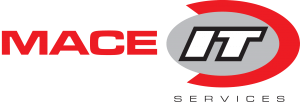Choosing a good email solution is crucial for efficient communication, collaboration, and overall productivity within an organization. When evaluating email solutions, consider the following key factors:

Reliability and Uptime: Ensure that the email solution has a reliable infrastructure with high uptime. Downtime can disrupt communication and affect productivity.
Security Features: Look for robust security features, including encryption for data in transit, anti-phishing measures, malware protection, and advanced threat detection. Email solutions should also support authentication protocols like SPF, DKIM, and DMARC.
Scalability: Choose an email solution that can scale with the needs of your organization. It should be able to handle an increasing number of users and growing storage requirements.
Integration Capabilities: Consider how well the email solution integrates with other tools and applications used within your organization, such as calendars, contacts, document sharing, and collaboration platforms.
Collaboration Features: Evaluate collaboration tools within the email solution, including shared calendars, contact lists, and document collaboration. Features like file sharing and real-time collaboration can enhance team productivity.
Mobile Accessibility: Ensure that the email solution provides a seamless and user-friendly experience on mobile devices. Mobile accessibility is crucial for users who need to access their emails while on the go.
User Interface (UI) and Experience (UX): The email solution should have an intuitive and user-friendly interface to facilitate easy navigation and use. A well-designed UI can improve user adoption and productivity.
Compliance and Legal Requirements: Confirm that the email solution complies with industry-specific regulations and legal requirements related to data protection and privacy. This is especially important for organizations in regulated industries.
Backup and Data Recovery: Check for robust backup and data recovery features. In the event of data loss, the email solution should provide mechanisms for recovering emails and other important information.
Cost Considerations: Evaluate the total cost of ownership, including licensing fees, storage costs, and any additional charges. Consider whether the pricing structure aligns with your organization’s budget and requirements.
Support and Service Level Agreements (SLAs): Assess the level of support provided by the email solution provider. Look for clear SLAs that outline the expected level of service, response times, and resolution procedures.
Vendor Reputation: Research the reputation of the email solution provider. Consider factors such as the provider’s track record, customer reviews, and the longevity of the company in the market.
Data Migration and Interoperability: Determine how easy it is to migrate existing email data to the new solution. Ensure compatibility with existing systems and the ability to integrate with third-party applications.

By thoroughly evaluating these factors, you can choose an email solution that meets the specific needs and requirements of your organization, promoting efficient communication and collaboration.

